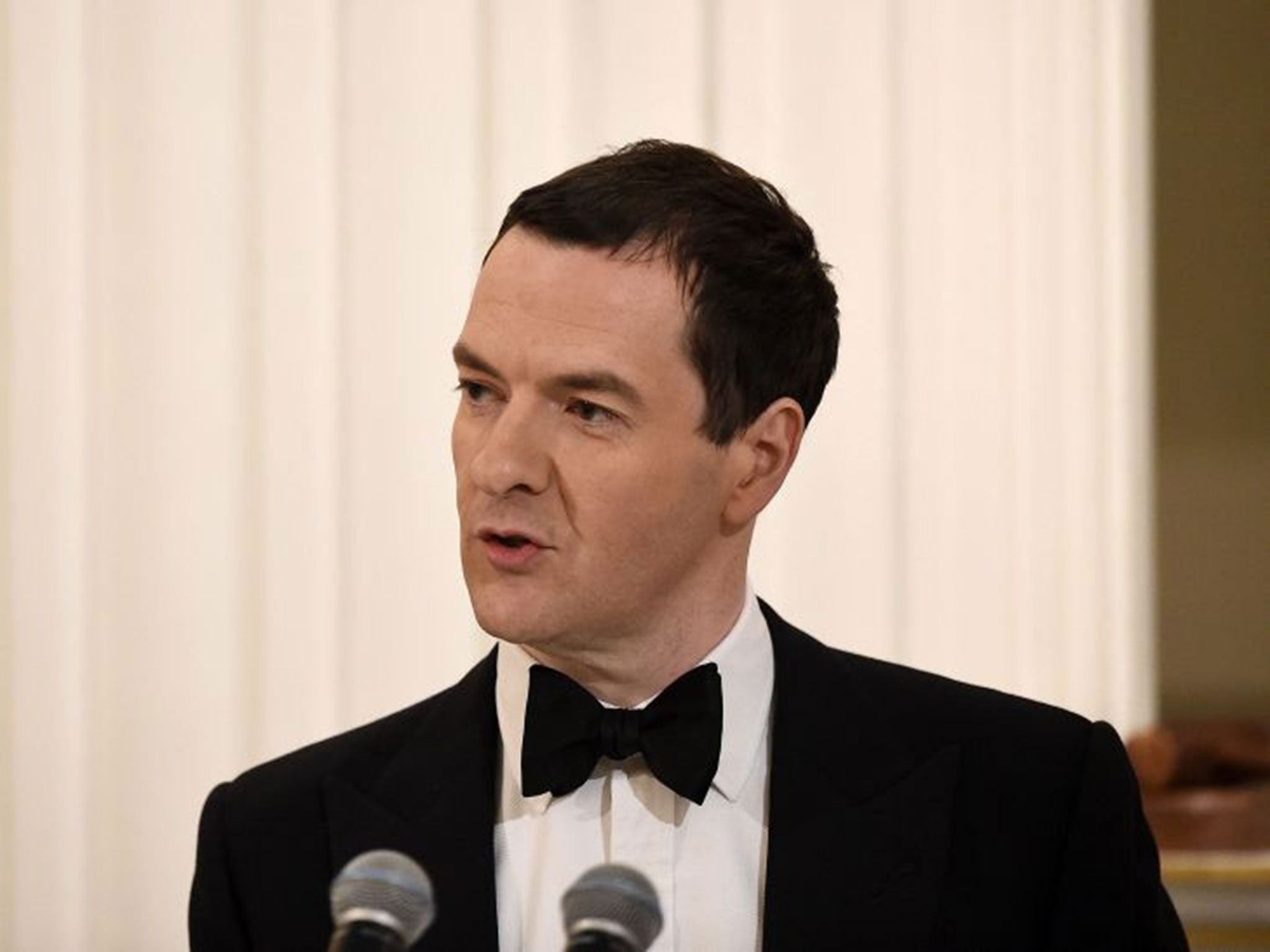Mansion House speech: George Osborne says RBS will be sold off at a loss to big City investors
Report advises Chancellor that bank’s value is unlikely to rise significantly soon

George Osborne fired the starting gun on the sale of the government’s stake in RBS to big City investors at a £14bn potential loss to taxpayers.
The Bank of England governor, Mark Carney, wrote to Mr Osborne to give his blessing to the move.
The Labour government spent £45.8bn buying shares in RBS at an average of 502p during 2008 and 2009 to save the bank from collapse. It was hoped that, as is now happening with the Lloyds bailout, the 79 per cent stake could be sold at a profit in future years once RBS was nursed back to health.
In the event, lumbered with a giant global investment bank to fix, plus heavy fines from regulators, RBS’s shares have fallen well below the price taxpayers paid for them, last night closing at just 352p and valuing the taxpayer’s stake at £31.6bn.
But the Chancellor announced at his Mansion House speech in the City of London that he would start selling them in the coming months anyway.
Big institutional investors will be offered the shares before ordinary members of the public due to RBS’s “complex investment case.”
The Chancellor said: “I was not responsible for the bailout of RBS or the price paid then for shares bought by the taxpayer: but I am responsible for getting the best deal now for the taxpayer and doing whatever I can to support the British economy. There is no doubt that starting to sell the government’s stake in RBS is the right thing to do on both counts.”
A quick sale would, he said “promote financial stability, a more competitive banking sector, and the interests of the wider economy.”
His announcement was made along with the publication of advice from Rothschild, the City bank he appointed to examine whether the shares should be sold to big investors despite their low price.
The Rothschild report advised Mr Osborne to press on with the sale because the share price did not look set to rise significantly soon, stock market conditions were currently good and a sale of some of the shares would make the remainder more marketable.
10 companies that have escaped government privatisation - so far
Show all 10Rothschild added a sale would send a clear signal that RBS was recovering and no longer bore the risk of being influenced by the Government. It said the stock market had dramatically reduced its assessment of RBS’s value since the bailout due to £30bn losses it has since recorded. “We believe a significant proportion of the reduction in value is likely to be permanent,” the report said.
Mr Carney echoed the main points of Rothschild’s reasoning, declaring: “Public ownership has largely served its purpose. It prevented enormous financial contagion at a time when the UK financial system was extremely fragile. It has stabilised RBS and helped catalyse the refocusing and necessary strategic change to build a viable business model that concentrates on serving UK households and businesses.”
The Rothschild report acknowledged, however, there was a “significant risk” of hugely expensive fines on RBS from US regulators, and that this may deter investors from buying the shares. It emerged that many of the biggest City institutions would refuse to buy them because they too are suing RBS.
Thousands of investors, including dozens of big institutions, have joined together to sue the bank for an expected £6bn over its disastrous rights issue in 2008. John Campbell QC, representing the RBoS Action Group, told The Independent that its members were “absolutely not” minded to buy more shares in the bank until their legal action is resolved.
Also speaking at Mansion House, Mr Carney unveiled a host of measures designed to clean up the City in the wake of a host of rate-rigging scandals.
Art scandal: Carney gets caught up
Bank of England governor Mark Carney has been named in relation to a bizarre art sale scandal in his native Canada.
The Canadian Broadcasting Corporation has axed political interviewer Evan Solomon for brokering lucrative art sales to people he interviewed – including Mr Carney. There is no suggestion of impropriety on behalf of the BoE chief.
Subscribe to Independent Premium to bookmark this article
Want to bookmark your favourite articles and stories to read or reference later? Start your Independent Premium subscription today.

Join our commenting forum
Join thought-provoking conversations, follow other Independent readers and see their replies